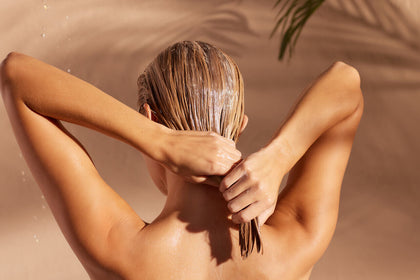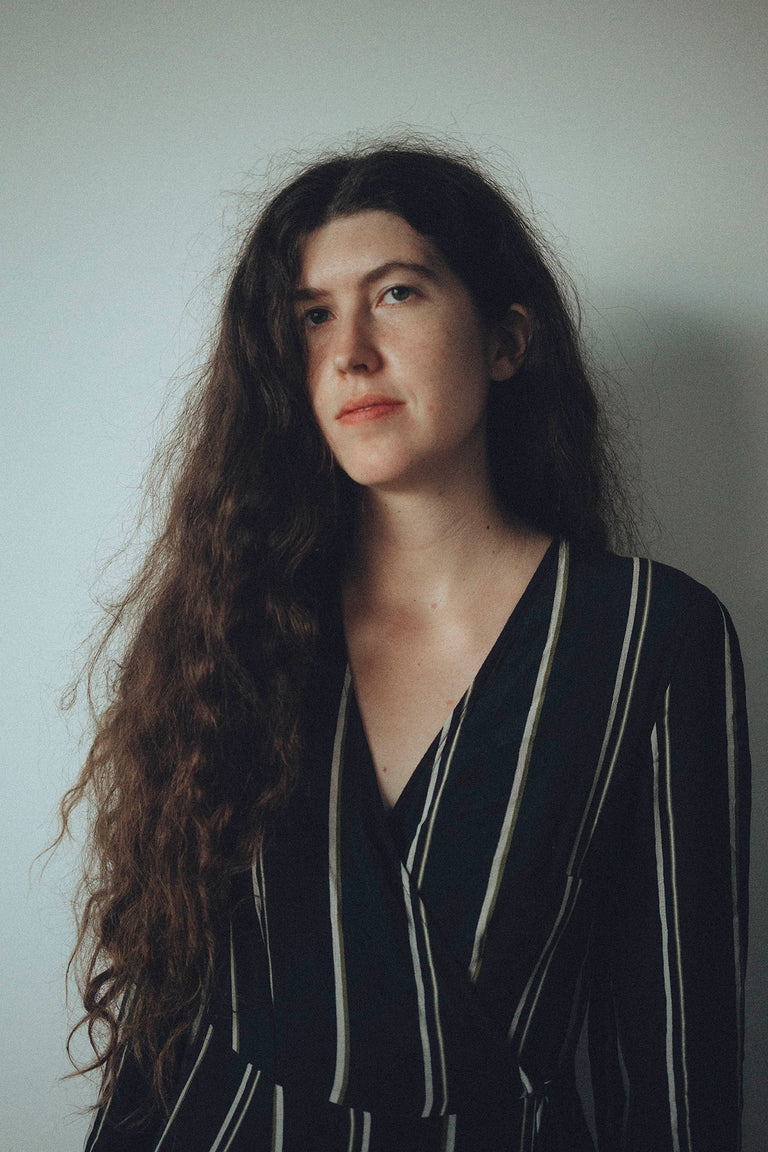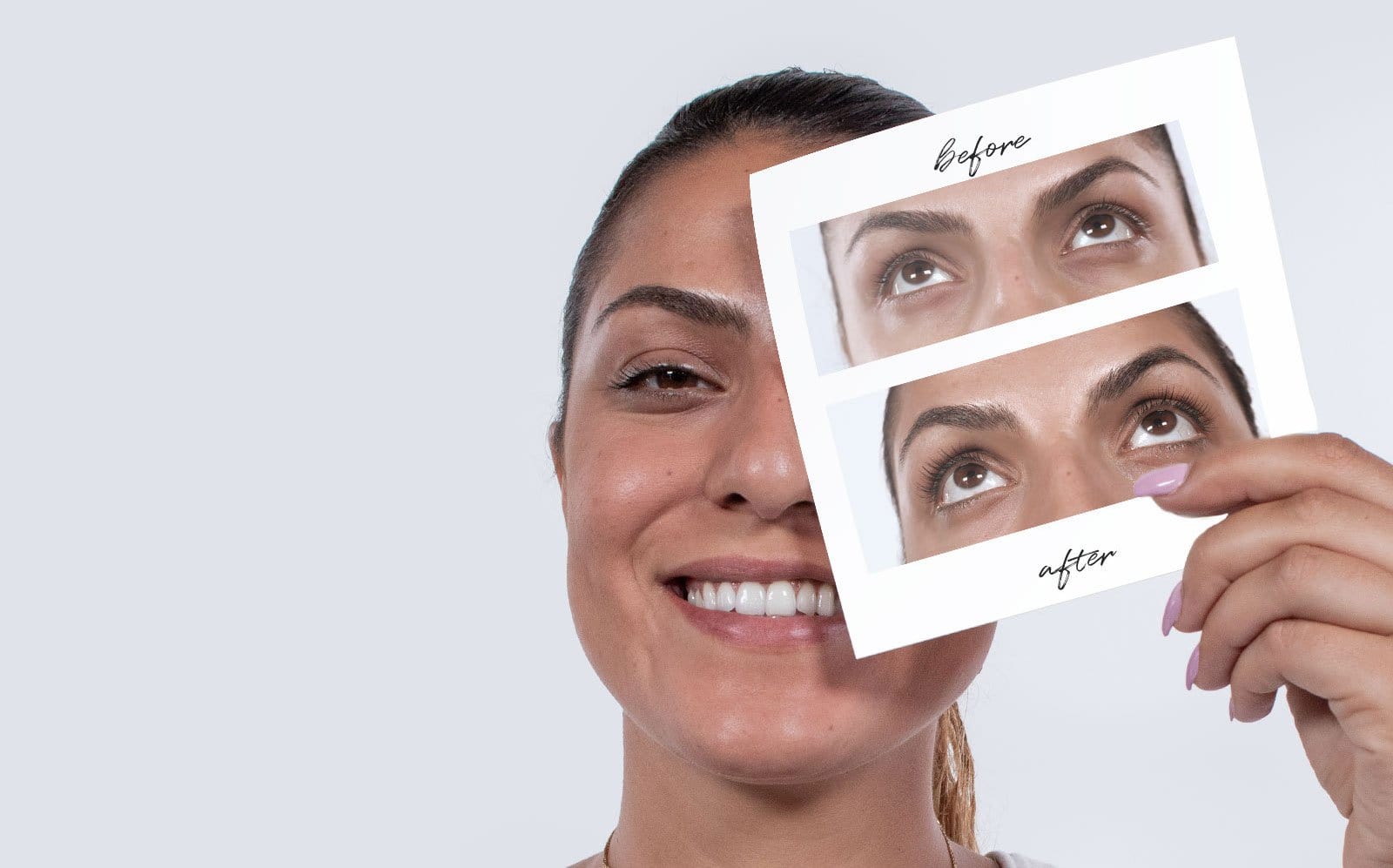For most of us, conditioning our hair is a reflex: After shampooing, we slather on some conditioner, almost as an afterthought. But why do we actually use hair conditioner, and can conditioning your hair the right way really be a game-changer for hair health?
Read on for a closer look into the role conditioner plays in a nourishing haircare routine that works. Plus, find the best hair products for long-term hair health and wellness.
#include-related-slider#
What Are the Benefits of Using Conditioner?
Shampoo and conditioner are often seen as a simple unit—they're even sometimes sold as a single two-in-one formula. But their purposes couldn't be more different: When you wash your hair with shampoo, you're cleansing your scalp of sweat, oil, dirt and other buildup. When you apply conditioner, you're moisturizing and adding nutrients to support your strands. Lots of conditioners can make your hair feel softer and look smoother, but a good conditioner also works to provide protection.
Shop: Cruelty-Free Hair Products
"Incorporating conditioner into your hair care regime is an easy, non-medical way to improve the health of your hair, including being a remedy for hair loss and breakage," says licensed aesthetician Rachel Roff of Urban Skin RX. When you condition your hair, you're helping provide moisture and smoothness to your strands, preventing breakage and damage that can be detrimental to long-term hair health. So it's important that you don't skip this critical step, and make sure you're using products that work for you.
How Conditioning Works
It smells great, and leaves hair feeling soft and smooth—but how does conditioning actually work?
It all starts with the structure of the hair follicle. Each strand on your head is coated in tiny cells that look almost like fish scales under a microscope. Healthy hair has a smooth, ribbonlike appearance under a microscope—like the "scales" are laying flat. But with damaged hair—whether that damage is from harsh color treatments, heat tools, dry weather or even stress—the "scales" are bristly, lifted or even broken off, creating breakage, split ends and an overall rough or dull appearance. If your hair is under-conditioned, over-conditioned or conditioned using the wrong products, this could be you.
When you apply conditioner, the natural ingredients in the formula act as a protective coating, smoothing the hair shaft and helping it retain moisture. Deep conditioner products, such as a deep conditioning hair mask or leave-in conditioner, can restore the hair's appearance by moisturizing down to the shaft, helping prevent damage and tame flyaways and split ends.
Finding Your Perfect Conditioning Fit
We know it's important to condition—but not all conditioners are created equal, and it's important to find the right conditioner for your hair needs. By grabbing a bottle off the shelf without paying attention to what's in it, you may inadvertently expose your delicate strands to chemicals and additives that can have damaging effects.
Conditioners that contain common ingredients like sulfates, silicones, parabens and artificial fragrances might create short-term smoothness and shine, but they come with consequences, board-certified dermatologist Dr. Deanne Mraz Robinson told Healthline. In the long term, they can lead to product buildup that clogs follicles, as well as strip hair of its natural protective sheath, creating damage that can be difficult to repair.
Instead, seek out a conditioner that's based on natural ingredients. Plant-based oils like wild marula tree oil, organic murumuru palm tree butter and ximenia oil help condition dried-out strands by creating a protective coating for the follicle, helping nourish hair from the inside out. These powerful active botanicals help condition and hydrate hair without leaving pore-blocking residue behind, and they can also help fight off scalp-damaging free radicals than can impact your hair's health and growth rate.
Read more: 5 Nutrients Your Hair Needs, According to a Nutritionist
Another often-overlooked offender is scent. While most conditioner is scented, some formulas use harsh artificial scents that may provoke allergic reactions and irritate the scalp, according to board-certified dermatologist Dr. Jeff Donovan. Not all fragrances are bad news, but if you're experiencing irritation, check your conditioner's label—and consider switching to a conditioner without artificial fragrances.
For bonus points, invest in a conditioner specifically designed for your hair type or hair wellness goals to make sure your hair is getting the support it needs—whether you have dry hair, curly hair, heavily treated or color treated hair or hair that's prone to breakage.
The Conditioner Ingredient You'll Love
While natural formulas and gentle restorative action are important basics in any hair treatment, there's a particular conditioning ingredient that reviewers are flipping for —including those with notoriously hard-to-tame curls and frizz. Dubbed Karmatin™, it's arrived on the scene as the haircare hero we didn't know we needed.
So, what is Karmatin? If you want to dive deep, read our in-depth explainer—but for now, here's the TL;DR version.
You may be familiar with keratin—the protein your body uses as a building block to grow and nurture hair, skin, and nails. If you experience high stress, use heat styling or regularly dye or chemically treat your hair, you may have lowered levels of keratin. Keratin can be added back into the hair, but much of the commercial keratin on the market today is derived from animal sources. As such, beauty experts and scientists have been working to create a man-made and cruelty-free product that has the same benefits.
That's why VEGAMOUR developed Karmatin. It's the first-ever vegan keratin alternative, powered by natural botanicals that work to protect hair and leave it feeling sleek and smooth.
Karmatin works by using micro-encapsulated vegan silk proteins that bond to those "scales" on the outside of your hair follicles, filling in any gaps or cracks in the structure. The strength of this bond allows Karmatin to stay on the surface of your strands after rinsing—unlike keratin, which rinses out—so it can help provide moisture and protect strands from heat styling, UV exposure and other damage. This means that when you use a conditioner that contains Karmatin, your hair is kept smooth and beautiful until your next wash day.
Entirely plant-derived and cruelty-free, Karmatin is used in all VEGAMOUR conditioners, hair masks, and shampoos, including GRO Revitalizing Conditioner.
Each VEGAMOUR conditioner is paired with active smoothing ingredients that help support Karmatin's protection. Active plant-based ingredients such as microencapsulated hemp, aloe gel and other plant-sourced sealers and smoothers work in tandem with Karmatin in all of our products to leave hair feeling nourished, supported and, well, conditioned!
Our hair wellness expert Ashley Streicher says "this conditioner is smoothing enough for dry brittle hair but light enough for fine and thin. It somehow has a nice heavy, moisturizing feel in the shower but does not weigh the hair down or leave any kind of greasy or heavy residue," an ideal addition to your routine.
#include-related-slider#
With the right combination of ingredients, conditioner can be your hair's secret weapon. And Karmatin is the ultimate answer to the question of "why condition?" It's an easy and conscious way to keep your hair smooth, shiny and looking incredible on wash day and beyond.
More from VEGAMOUR:
- See Alex Belbel's Go-To Hair Products
- Do You Know Your Scalp Type?
- Do Split Ends Stop Hair Growth?
- Why Is My Hair So Dry?
- Why Choose GRO Hair Serum




















